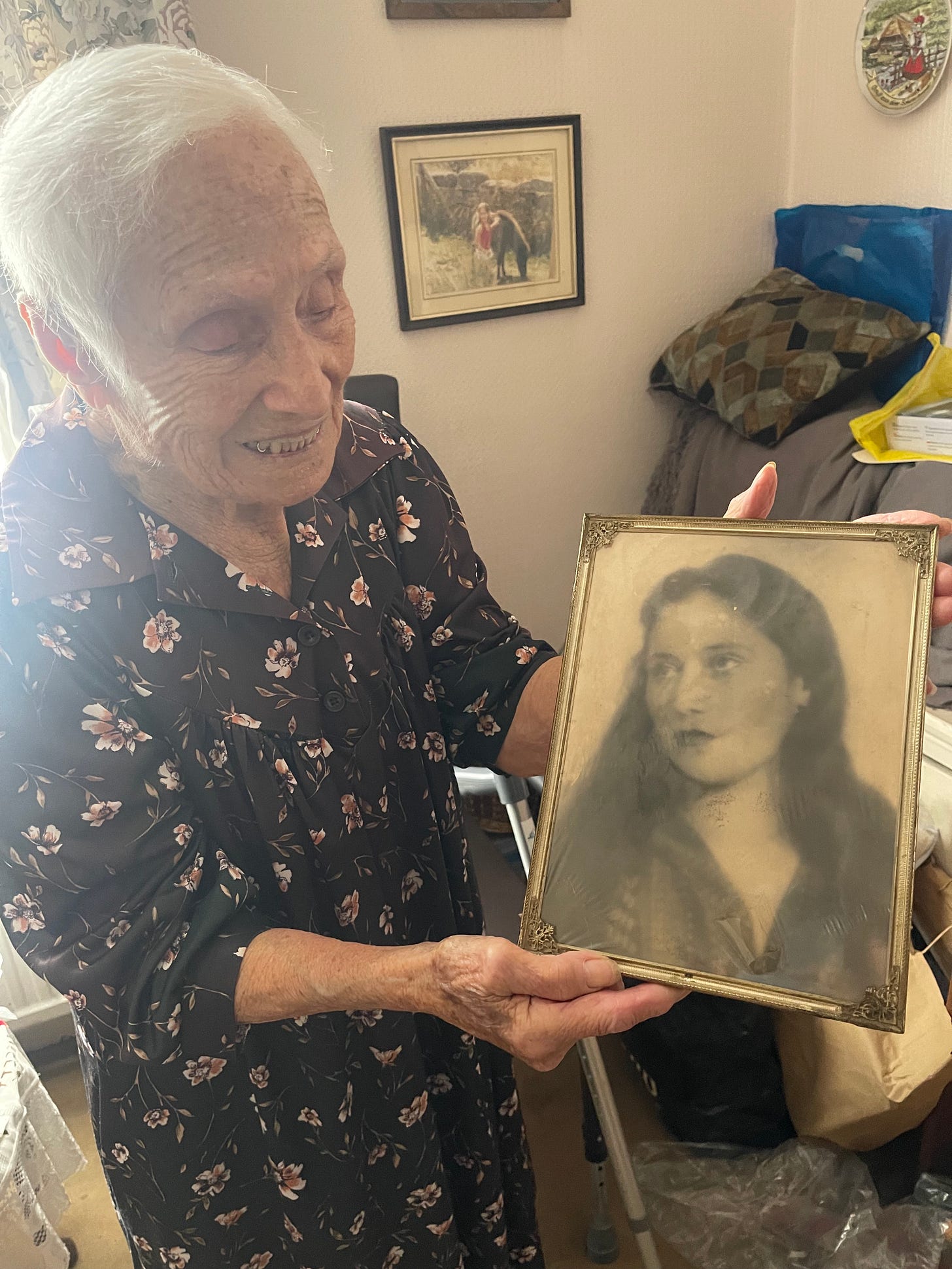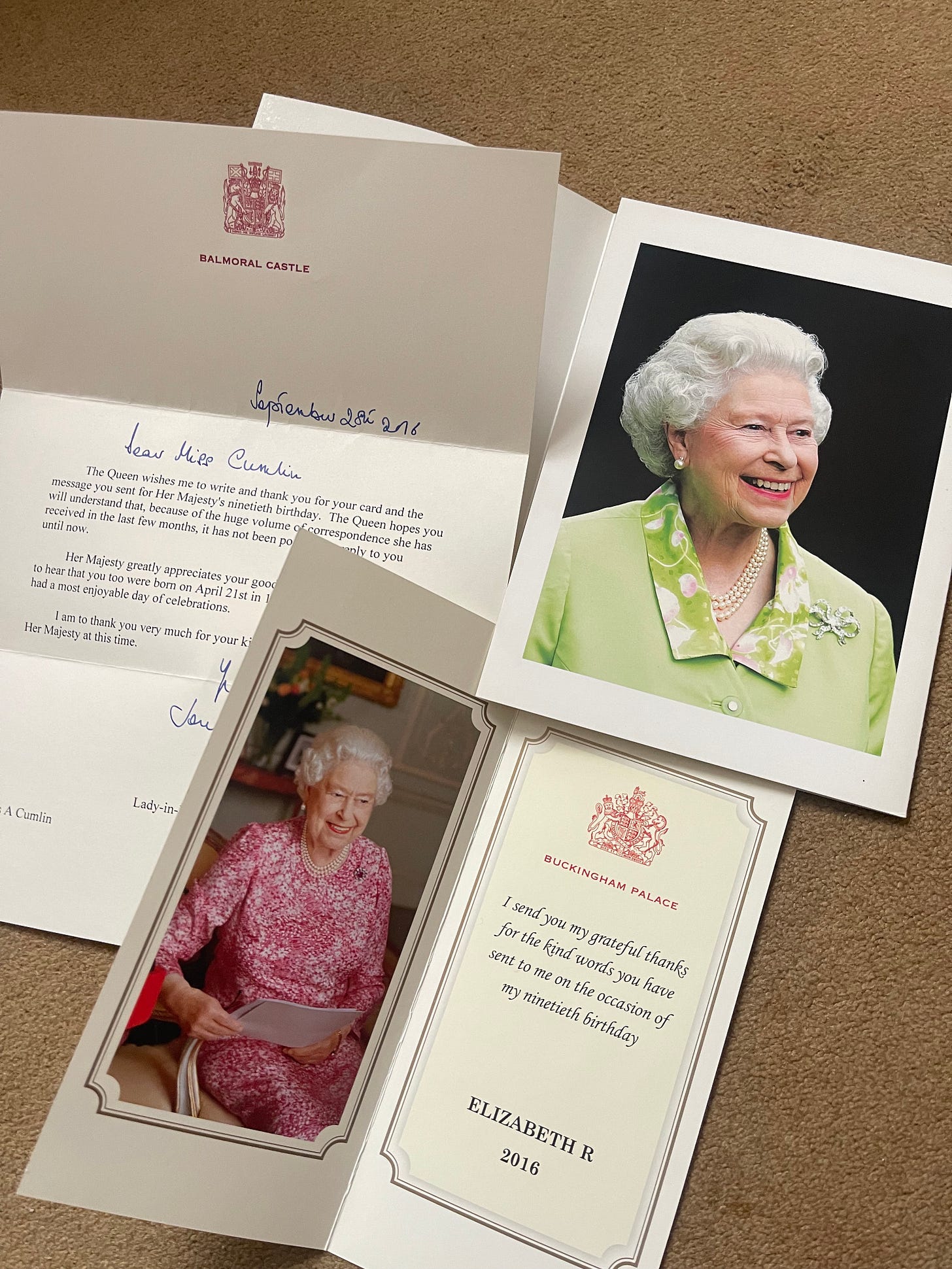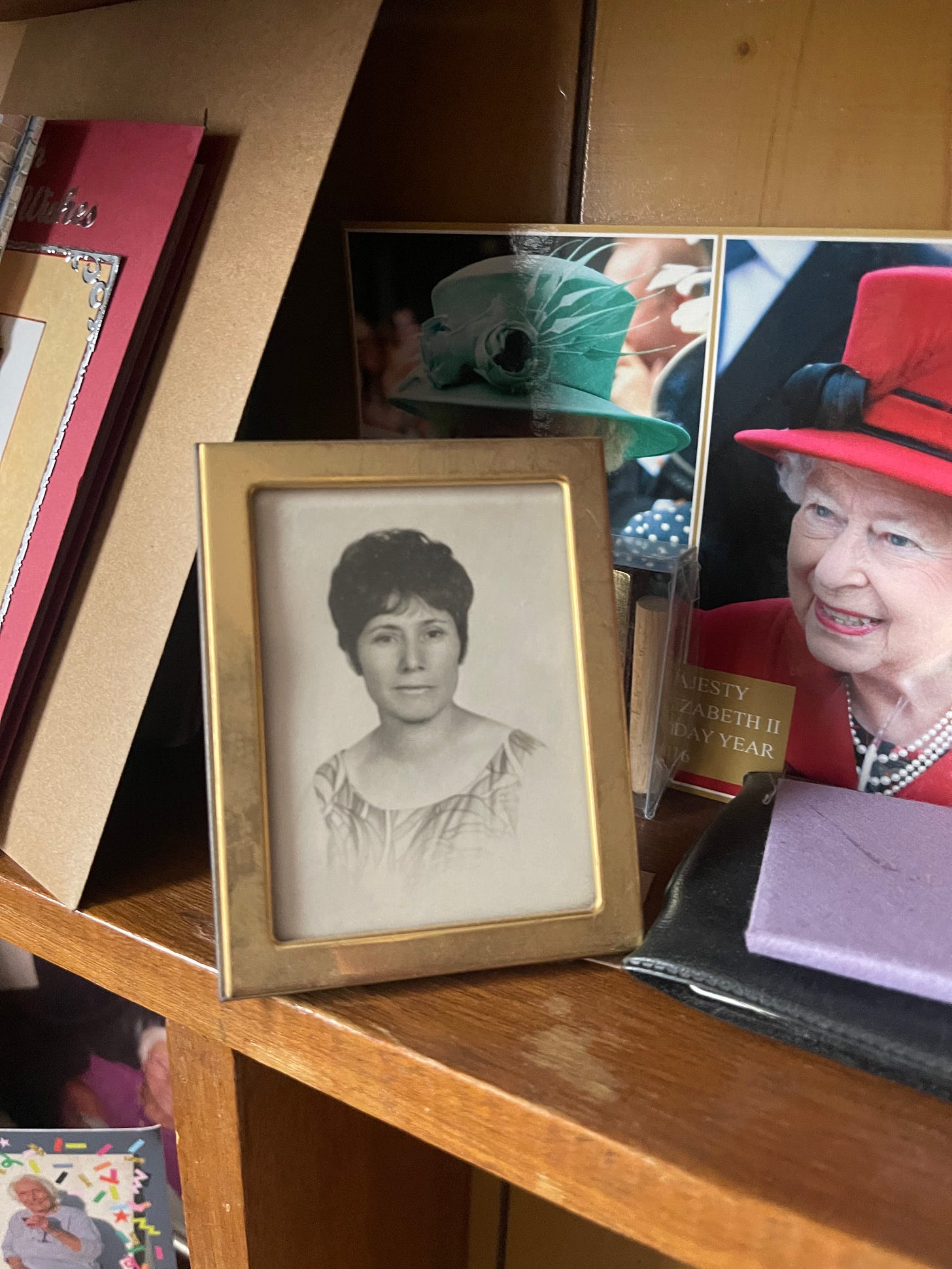A Queen for the foreign-born
Dear readers (or listeners, if you click below to hear me read this post),
like many in the UK, I’ve been upset by the death of Queen Elizabeth II.
In it of itself, this is hardly a groundbreaking statement. The hour-long queues to see the Queen lying in state speak for themselves. But I guess that as a foreign-born, ‘adopted’ Brit, there was a part of me that felt uneasy about being so upset.
Having moved to the UK as an adult, I can’t claim to have grown up with the Queen always in the background. She certainly wasn’t a fixture of my childhood. The Italian part of me is proudly Republican, and we did away with our monarchy roughly at the same time that we got rid of Fascism. We didn’t chop their heads off like the French, but they were exiled for a long time.
So although I was happy to swear allegiance to the Queen and her heirs during my British citizenship ceremony,
the irony of having moved to the UK because it’s a meritocracy to then swear allegiance to a hereditary monarchy was not lost on me
As I wondered whether I had the ‘right’ to feel so upset about the Queen’s death, I remembered that the most ardent monarchist I know is also a foreign-born adopted Briton.
Dear readers, meet Angela.
Angela Cumlin was born Angela Lorenzano in Locri, in the southern Italian region of Reggio Calabria, on April 21, 1926.
If that date seems familiar, it’s because it’s the same exact birthday as Queen Elizabeth’s. Angela is very proud of that.
Angela was a war bride. She came to the UK in 1947, having married the dashing Scottish soldier she fell in love with who had been stationed in war-torn Italy. (and if you want to hear the hilarious and slightly saucy story of how they met, listen to the podcast version of this newsletter by clicking link above, I add it at the end.)
Angela is utterly devastated by the Queen’s death.
I went to see her and she started crying as soon as she opened the door: “Since she’s gone, I have been ill.” she said
Angela feels she had a special relationship with the Queen. When she came to the UK as a 22-year-old, she sent a letter to the then Princess Elizabeth. A lovely letter, is how Angela describes it. “I wrote it in Italian because I didn’t speak a word of English then.” In the letter she swore lifetime loyalty to the Princess and the Crown.
I asked Angela why she thought of writing to Princess Elizabeth having just arrived in a foreign country.
‘Because I loved her! Since I was a very young girl, when I saw a photograph of her. And then I heard that she had served in the War, even in Italy we heard stories about what she did. And I fell in love with her.”
As it turns out, the Queen wrote back. It was the start of a correspondence that lasted decades.
Angela treasures all the letters from the Queen, and there are pictures of the monarch dotted around her house.
When Angela talks about the Queen it’s like hearing her talk about a sister or a friend, someone she shared a bond with.
It would be easy to dismiss her words and tone as fanciful, but the Queen, or the then Princess, was the only thing Angela really knew about the UK before moving here right after the devastation of World War 2.
Princess Elizabeth was the one thing she was familiar with in an otherwise alien country, one that was so different from her native southern Italy.

Angela is very upset by the Queen’s death, and though she’s strong for her age, her fragility is obvious. She can’t stand for long. She told me she hasn’t slept properly for days. We don’t talk about it openly, but it’s obvious that the Queen’s death has also brought forward thoughts about her own mortality.
Angela is glued to the TV and is watching the live coverage of the lying-in-state. I ask her if she would have liked to pay her respects and go to the funeral.
Her voice breaks as she answers.
Oh yes, I would love to…I would love to pay my last respects, but my legs….I can’t move, dear. She knows that. She knows I’d love to go. I watched all the events in Edinburgh, I watched the lot. And I wish I was there.
Angela says she prays to the Queen, for the rest of the Royal Family but also for her own. As I leave it strikes me that there’s an almost religious element of veneration to Angela’s devotion. The Queen had been a symbol all through her life, from fairy tale princess, to resilient mechanic doing her bit during the war, to matriarch. A welcoming mother /sister figure that Angela has grown up with and grown old with. A reassurance.





Very amazing story. I feel a little bit involved, because I was born on 21st April 1971; exactly 55 years later the queen Elisabeth II and lady Angela Lorenzano. Thanks for all. Sebastiano
Dear Barbara, your doubts were more than justified, but at the same time I believe that once you stay for so long in a foreign Country, it becames no more a foreign one but your other Country and so you share all the feelings that you would in your original one at first stage. If you see the question from onother poit of view you may ask yourself, would the natives allowed me to feel pain for their queen death ? That is a triky question as you would receive both the answers, yes and no as some natives see positively your migration to their Country and the levels of career you reached there and some others would not. The first people would be the youth, the new generations which ideal is to live everywhere you like to consider it your new home, the second people are the over 60's, the ones that see you as the person between others who took off one career from a native. That also is why the radical Conservatives won the Brexit even supported by the young natives who are probably still now jobless. In all Countries there are unhappy people that find into the immigrants their reasons to complain because of their own failures and this is taken and used by the populist politicians to grow their careers and get to the central power. See in how many ways you could see the same matter ? Thans for sharing your insights ! Your faithfully, Nicola Maurizio Palumbo